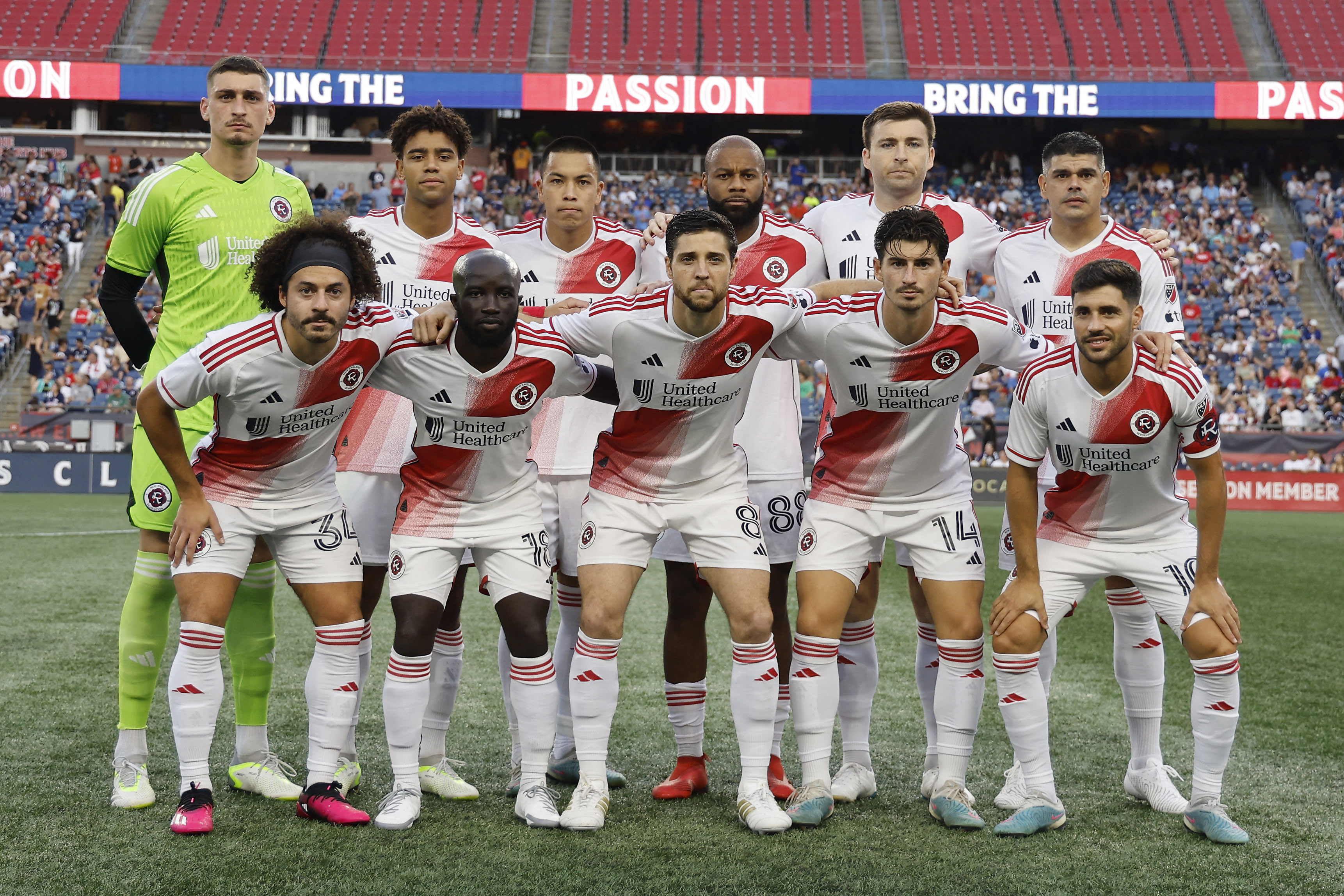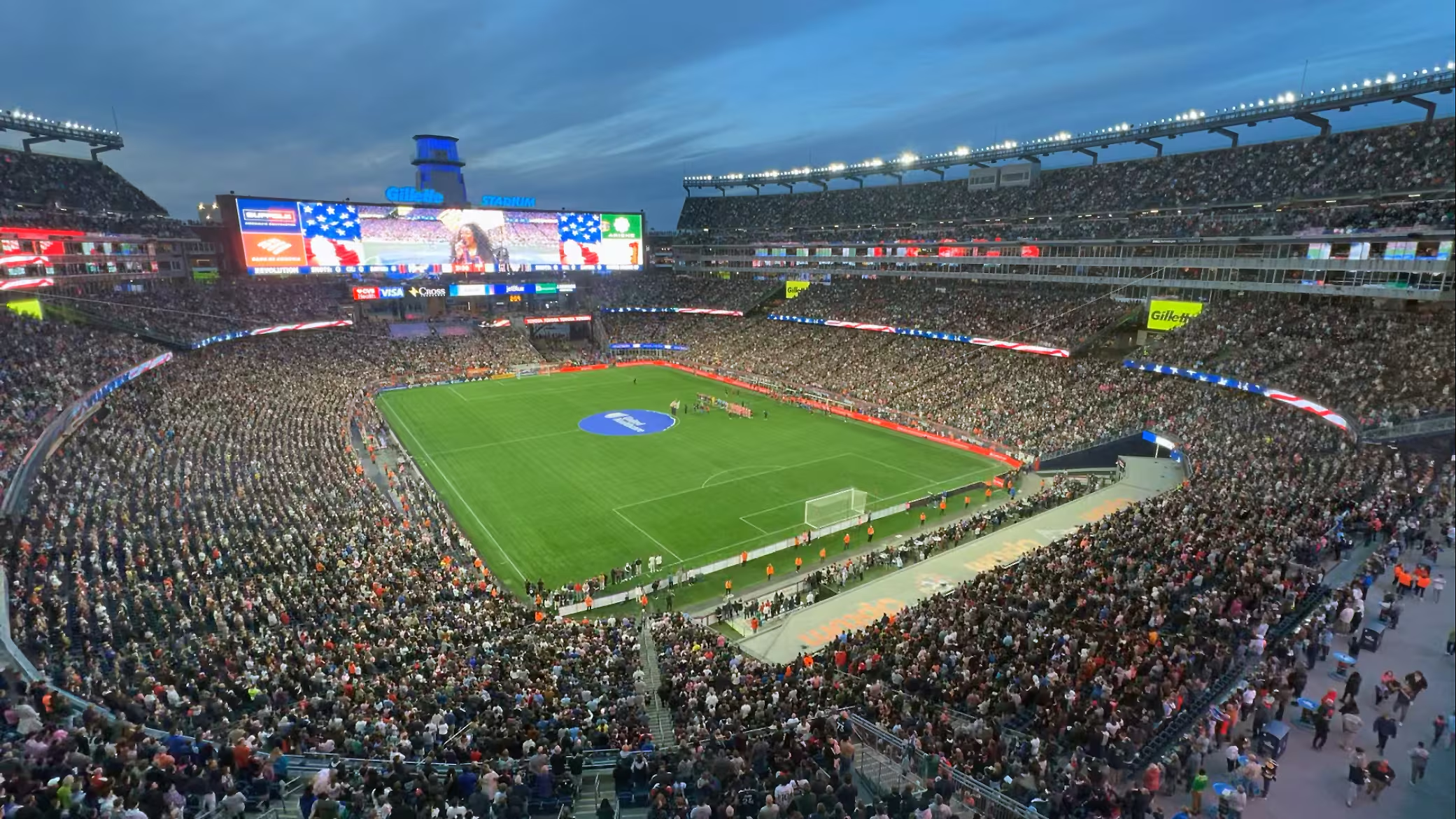MLS
New England Revolution: Tradition, Legacy, and the Future of Soccer in New England

New England Revolution: Tradition, Legacy, and the Future of Soccer in New England
The New England Revolution, one of the ten original clubs in Major League Soccer’s inaugural 1996 season, occupies a unique and foundational role in the history of American professional soccer. Based in Foxborough, Massachusetts, and representing the greater New England region, the Revolution are deeply interwoven with the league’s growth, survival, and eventual surge in popularity. From its early years in cavernous Foxborough Stadium through its current tenure at Gillette Stadium, the Revs have embodied both the struggles and triumphs of MLS as it has evolved into one of the fastest-growing soccer leagues in the world.
The team’s name and branding tie directly into the heritage of the region. The “Revolution” moniker is an explicit reference to New England’s central role in the American Revolution, anchoring the club in the cultural and historical identity of Massachusetts and its surrounding states. The club’s original crest, featuring a paintbrush-style American flag and soccer ball, became a quirky but beloved symbol of MLS’s early era. In 2021, the Revolution unveiled a sleek new crest as part of its modernization push — a change that symbolized how the club was transitioning from one of MLS’s plucky originals into a contender with ambitions for the future.
On the pitch, New England has a storied if bittersweet legacy. Despite being perennial playoff contenders through the 2000s, the team was long defined by near misses. Under head coach Steve Nicol, the Revs reached four MLS Cup Finals between 2002 and 2007 but fell short each time, losing to powerhouses like the LA Galaxy and Houston Dynamo. This run created a reputation for resilience but also heartbreak, cementing the Revolution as the league’s great “almost” dynasty of the 2000s.
Yet the club also played an important role in developing American soccer legends. Taylor Twellman, one of the most prolific scorers in MLS history, wore the Revolution shirt, as did Clint Dempsey, who went on to star in the Premier League and with the U.S. Men’s National Team. Shalrie Joseph became a fan favorite and midfield general, while Matt Reis provided years of consistency in goal. These players not only defined an era of Revolution soccer but also elevated MLS in its formative years.
Recent years have seen the Revolution enter a new chapter of ambition. Under Bruce Arena’s leadership, the club won its first-ever Supporters’ Shield in 2021, finishing with the best record in MLS history at the time. While postseason disappointment once again followed, the season marked a turning point. Today, New England is striving to balance its history of heartbreak with the promise of sustained success — aiming to transform from a perennial runner-up into a consistent champion.
Rivalries
Rivalries form the emotional heartbeat of any soccer club, and for New England, several have taken shape across MLS’s three decades. The most historic and intense remains their rivalry with the New York Red Bulls, a clash that dates back to the very beginning of MLS. Both founding members of the league, the Revolution and Red Bulls (formerly MetroStars) developed a competitive edge from constant postseason encounters. Matches between the two are often hard-fought, and fanbases on both sides relish the opportunity to reignite the battle of New England versus New York.
Another key rivalry has emerged with D.C. United. During the 2000s, when both clubs were at or near their peaks, they regularly clashed in high-stakes playoff encounters. The 2004 and 2006 Eastern Conference Finals were particularly memorable, producing dramatic goals, physical battles, and a level of animosity that still lingers between the clubs. While both teams have fluctuated in recent years, the shared history ensures that any matchup carries a sense of nostalgia and importance.
In more recent MLS geography, natural rivalries have blossomed with clubs like New York City FC and Philadelphia Union. With NYCFC’s rise and the Union’s growing dominance in the East, New England often finds itself measured against these new-era rivals. Philadelphia’s relentless style and NYCFC’s attacking flair provide stark contrasts to the Revolution’s pragmatic approaches, setting up entertaining contests that reflect the changing dynamics of the league.
Perhaps the most emotional rivalry for fans, however, comes with the Montreal Impact (now CF Montréal). Tied by their geographic proximity and shared New England–Quebec cultural links, the “New England–Montreal” matchup has evolved into a true cross-border derby. Canadian and American fan groups regularly make the trip, creating an atmosphere that feels distinctly international within MLS.
Trivia note: The Revolution’s first-ever MLS Cup Final appearance in 2002 came against the LA Galaxy at Gillette Stadium, making them the first club to host a final on their home turf — though the heartbreak of losing in extra time still stings supporters to this day.
New England Revolution: Ownership
The Revolution are owned by the Kraft family, specifically Robert Kraft and his son Jonathan Kraft, who also own the NFL’s New England Patriots. The Krafts were instrumental in the establishment of MLS, with Robert Kraft being one of the league’s original investors and providing crucial stability during MLS’s financially uncertain early years. This dual ownership of both football and soccer franchises has always shaped the identity and fortunes of the Revolution.
Critics have often accused the Kraft family of being too passive with their soccer operations compared to their high-profile stewardship of the Patriots. For years, fans argued that investment in facilities, marketing, and roster building lagged behind other MLS clubs. The Revolution played in Gillette Stadium with NFL-centric sightlines and turf, and player signings often lacked the star power of clubs like LA Galaxy or New York Red Bulls.
However, the Krafts have also been vital in keeping MLS afloat in its toughest days. Robert Kraft was known for his loyalty to the league, refusing to fold or relocate the team when others pulled out. As MLS expanded and stabilized, the Kraft family slowly began to increase their investment. The hiring of Bruce Arena in 2019 symbolized a greater ambition, and their commitment to upgrading training facilities signaled a shift toward more modern standards.
Jonathan Kraft has taken a more hands-on role in recent years, speaking of the Revolution as a long-term growth project. Still, the biggest point of debate among fans remains whether the Krafts will ever secure a soccer-specific stadium for the Revolution — a move widely seen as necessary for the club to reach its full potential.

Watch New England Revolution
For its entire existence, New England has played at Gillette Stadium (and before that, Foxborough Stadium), sharing the venue with the Patriots. While Gillette is a world-class NFL facility, with a capacity of over 65,000, it has long been criticized as less than ideal for soccer. The large capacity often dwarfs Revolution crowds, and the artificial turf, though improved over time, has never matched the authenticity of natural grass pitches.
Despite these drawbacks, Gillette Stadium has hosted some memorable soccer moments. The Revolution have played countless playoff games there, and the venue has hosted U.S. Men’s and Women’s National Team matches, as well as international tournaments like the CONCACAF Gold Cup. The sight of New England fans filling the lower bowl with flags, chants, and drums has become an iconic MLS image.
Fan culture at Gillette has been led by groups like the Midnight Riders and The Rebellion, whose sections create a vibrant and noisy atmosphere. These groups carry on traditions of tifo displays, coordinated chants, and road trips to rival stadiums, keeping the Revolution fan experience alive despite the challenges of an oversized venue.
Trivia fact: Before the opening of Gillette in 2002, Foxborough Stadium was one of the sites of the 1994 FIFA World Cup. That tournament helped inspire the creation of MLS, giving the Revolution’s home region a direct connection to the league’s birth.
The debate over a soccer-specific stadium has persisted for decades. Locations in Boston proper have been explored, with fans envisioning a more intimate urban stadium that could replicate the atmosphere of newer MLS venues like LAFC’s BMO Stadium or Orlando’s Exploria Stadium. To date, however, negotiations and proposals have fallen through, leaving the Revolution in Gillette for the foreseeable future.
New England Revolution: This Season
The 2025 campaign finds New England at a crossroads. After a period of resurgence under Bruce Arena, including their record-breaking 2021 season, the Revolution have struggled to maintain consistency. Player turnover, injuries, and the ever-growing competitiveness of MLS have presented challenges. Still, the club has talent capable of making noise in the Eastern Conference.
Carles Gil remains the heartbeat of the squad. The Spanish playmaker, and 2021 MLS MVP, is a maestro in midfield, dictating tempo, creating chances, and serving as captain. His vision and technical ability make him one of the league’s premier creative players, and the Revolution’s fortunes often rise and fall with his form.
Alongside him, striker Giacomo Vrioni has been tasked with carrying the scoring load, though fans continue to debate whether he can replicate the prolific numbers of past Revs forwards like Taylor Twellman. Young homegrown players such as Noel Buck add excitement, as the Revolution’s academy has started to produce legitimate talent capable of contributing at the MLS level.
Defensively, the club relies on the steady presence of Andrew Farrell, one of the longest-serving players in team history, and goalkeeper Djordje Petrović, who quickly became one of the best shot-stoppers in the league before his European transfer. The Revs are working to rebuild their backline to maintain stability in a conference filled with attacking firepower.
This season has also been marked by questions surrounding the coaching staff and front office. With Bruce Arena’s departure in 2023, the Revolution entered a transitional period. The new management faces the challenge of balancing short-term competitiveness with long-term vision, as the club aims to avoid slipping into mediocrity.
New England Revolution: What to Follow
Looking ahead, the Revolution’s trajectory will depend on several key storylines. First and foremost is the stadium question — will the Kraft family finally deliver a soccer-specific stadium in Boston or its surrounding cities? Such a move would instantly transform the club’s visibility and connection with its urban fan base, bringing them in line with the league’s most modern teams.
Player development will also be crucial. With Noel Buck and other academy talents emerging, the Revolution have an opportunity to build a sustainable future rooted in homegrown stars. If the club can balance these players with strategic international signings, they could replicate the formula of MLS contenders like Philadelphia or FC Dallas.
On the field, fans will be watching closely to see whether Carles Gil can lead another deep playoff run, and whether the team’s attacking options can rediscover the clinical edge that defined their record-breaking 2021 season. Consistency has always been the Revolution’s biggest challenge — flashes of brilliance have too often been followed by disappointing playoff exits.
Trivia worth noting: The Revolution hold the dubious distinction of being the MLS club with the most MLS Cup Final losses (five) without a championship. This fact both frustrates and motivates the fan base, who see each season as another chance to finally lift the league’s ultimate prize.
Culturally, New England remains a fascinating case within MLS. Its fan base is passionate but longs for more investment and ambition. Its history is rich, filled with legendary players and unforgettable playoff runs. And its future, while uncertain, carries the potential of transformation if the right investments are made.
As MLS continues to grow rapidly, the New England Revolution stand as one of its original pillars, a reminder of where the league began and where it is headed. Whether the Revs can finally shed their reputation as perennial runners-up and cement themselves as champions will be one of the most intriguing storylines to follow in the years ahead.
